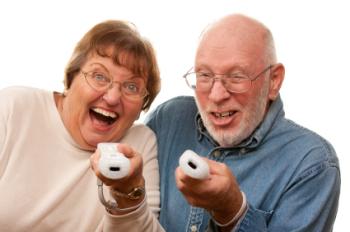
How old we feel often reflects our physical and mental well-being. Many people have a self-perceived age that is different to their actual chronological age.
The research letter, published in JAMA Internal Medicine, observed a lower death rate in older people who felt 3 or more years younger than their actual age, compared with participants who felt their actual age or more than 1 year older.
"Self-perceived age reflects appraisals of health, physical limitations, and well-being in later life," write the authors of the study, from University College London in the UK. "Older people typically feel younger than their chronological age, and it is thought that those who feel younger than their actual age have reduced mortality."
A number of social experiences have been identified that affect self-perceived age over time. Role transitions and off-time events such as becoming a parent at an early age, experiencing stress, the development of serious health problems such as heart problems or cancer - all have been found to speed up self-perceived aging.
The researchers analyzed data from the English Longitudinal Study of Ageing in 2004-2005 for 6,489 participants. They measured the self-perceived age of the participants by asking the question, "How old do you feel you are?"
The average chronological age for the participants was 65.8 years, and the average self-perceived age was 56.8 years.
Participants were divided into three groups: those whose self-perceived age was close to their actual age (25.6% of participants), those who felt more than 1 year older than their actual age (4.8% of participants), and those who felt 3 or more years younger (69.6% of participants).
The researchers then recorded all mortality including deaths from cancer and cardiovascular disease up until March 2013. The average follow-up period for the participants was 8.25 years.
They found that the mortality rate was 14.3% among adults who felt younger than their actual age. In comparison, participants with a self-perceived age close to their actual age had a mortality rate of 18.%, and participants who felt older than their actual age had a mortality rate of 24.6%.
'Self-perceived age has the potential to change'
There was a strong association between self-perceived age and death caused by cardiovascular disease, although not between self-perceived age and cancer death.
"Although baseline health, physical disability, and health behavior accounted for some of the association, after adjusting for all covariates, there remained a 41% greater mortality hazard in people who felt older than their actual age compared with those who felt younger than their actual age," write the authors.
The authors also tested for reverse causality by excluding participant deaths within 12 months of the study's commencement. They state that this suggested the association was not a result of participants perceiving their age as older than their actual age due to being in the terminal phases of their lives.
 The proportion of study participants who felt older than their actual age was relatively small in comparison with the other self-perceived age groups, and so further research may be needed to validate these findings.
The proportion of study participants who felt older than their actual age was relatively small in comparison with the other self-perceived age groups, and so further research may be needed to validate these findings.
The authors state that the mechanisms underlying these associations merit further investigation as well. They suggest that greater resilience, sense of empowerment and will to live, as well as specific health behaviors such as adhering to medical advice, could explain the lower mortality rates in people feeling younger than their actual age.
"Self-perceived age has the potential to change, so interventions may be possible," conclude the authors. "Individuals who feel older than their actual age could be targeted with health messages promoting positive health behaviors and attitudes toward aging."
In fact, running for exercise could slow the aging process. Senior citizens who run several times a week expend the same amount of energy as a typical 20-year-old when walking.
References:
Feeling old vs being old: associations between self-perceived age and mortality, Isla Rippon & Andrew Steptoe, JAMA Internal Medicine, doi:10.1001/jamainternmed.2014.6580, published online 15 December 2014, abstract.
JAMA news release, accessed 15 December 2014.
Additional source: Social experiences that make you feel older, David Russell, Psychology Today, published online 25 November 2011.

No comments:
Post a Comment